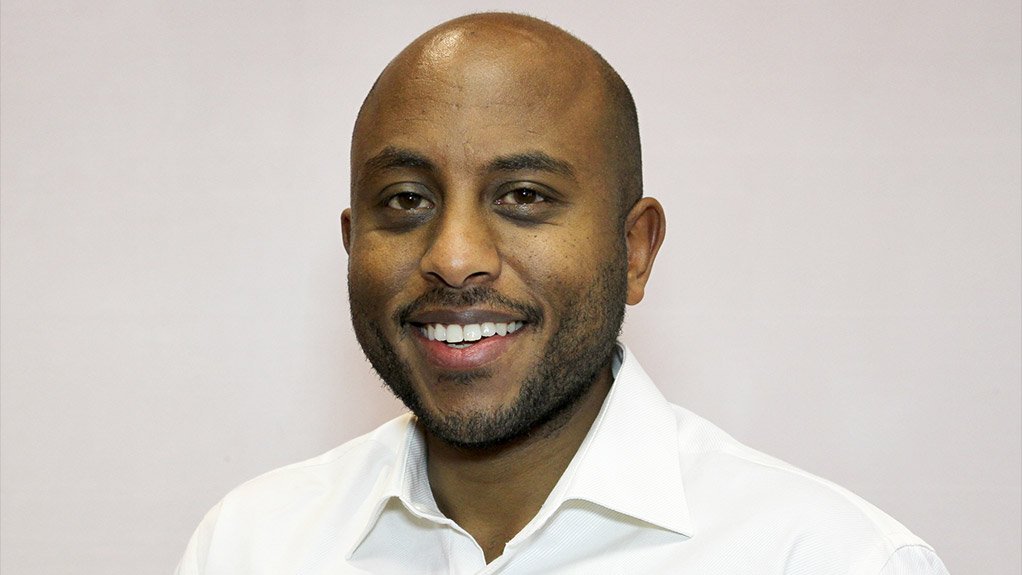The steel construction sector has an important role to play in the Fourth Industrial Revolution (4IR), and the Southern African Institute of Steel Construction (Saisc) aims to lead the charge on behalf of the sector, says Saisc technical director Amanuel Gebremeskel.
“We do this primarily by promoting intelligent design by our engineering members, high-quality manufacturing by our mill and fabricator members and novel use of the building information modelling software, as well as other technologies, by our consultant and contractor members.”
The institute has also been exploring other areas, such as smart building construction methods in South Africa, as buildings currently account for the majority of energy consumption, whereas, in other parts of the world, this type of steel consumption far outweighs that of the industrial or transport sectors, he explains.
“We are, therefore, carrying out research and development (R&D) on how to reduce the energy consumption of buildings using intelligent building systems.”
Another area of interest involves reducing the use of potable water during construction to avoid wasting the scarce resource during the construction phase of buildings, he adds.
The Saisc modular office building system, invented by engineers at the institute, is also assessing the sustainability of buildings on a holistic level.
Gebremeskel states that the system does not use wet trade on site, which eliminates the use of water in the construction process.
The system also focuses on the insulation and strategic placement of ventilation systems to reduce the overall building height and energy use, as well as on reducing construction risks, such as injury and delays, by carrying out most of the modular construction in an enclosed factory rather than on site.
“We started by studying how to design, develop and commercialise the system. Upon completion of the study, Saisc managed to mobilise industry resources to start the process of technical development. “More R&D work has been carried out to confirm the easy construct ability and structural integrity of the novel system,” he enthuses.
Saisc is currently testing the system’s resistance to accidental fire, despite serious constraints in resources.
Further, Gebremeskel highlights that innovative initiatives such as these are vital to the sustainability of the steel sector, as the production of good-quality steel is no longer the only measure of competitiveness, owing to a number of emerging economies that are developing their steel sectors.
Saisc predicts that enhancing the competitiveness of the local sector is critical as competition with other regions is expected to be even fiercer in the future.
“The sector has to consistently evaluate the market and find ways of using steel to solve grand societal problems. Without the ability to keep up with ever-changing demands and providing relevant and novel solutions, it will be difficult to stay competitive. This is why innovation has to be at the forefront of our sector’s strategy,” he stresses.
Moreover, the testing of the modular office building system and recent fire furnace construction was carried out at the Stellenbosch University, in the Western Cape, where the institute had to develop the national capability to conduct fire-related research from scratch.
The institutes’s efforts have resulted in training and development by fire expert Dr Richard Walls, with the establishment of a national centre for fire research at the university under his leadership.
“We are proud that our invention is the first project to be investigated by this one-of-a-kind centre in Africa. Much work still remains to be done in our innovation efforts. Engagements with developers, architects, engineers and our manufacturing and contracting industry are key to succeed in commercialising this invention. This will require Herculean efforts in education and marketing on our part,” says Gebremeskel.
Moreover, Saisc is pleased to engage with the Department of Trade, Industry and Competition (DTIC) in its promotional efforts. Gebremeskel says the DTIC supports the modular office building system through Technology and Human Resources for Industry Programme funding.
“We are also very excited to have students from historically disadvantaged institutions participating in our R&D activities,” he concludes.
Edited by: Zandile Mavuso
Creamer Media Senior Deputy Editor: Features
EMAIL THIS ARTICLE SAVE THIS ARTICLE
ARTICLE ENQUIRY
To subscribe email subscriptions@creamermedia.co.za or click here
To advertise email advertising@creamermedia.co.za or click here













